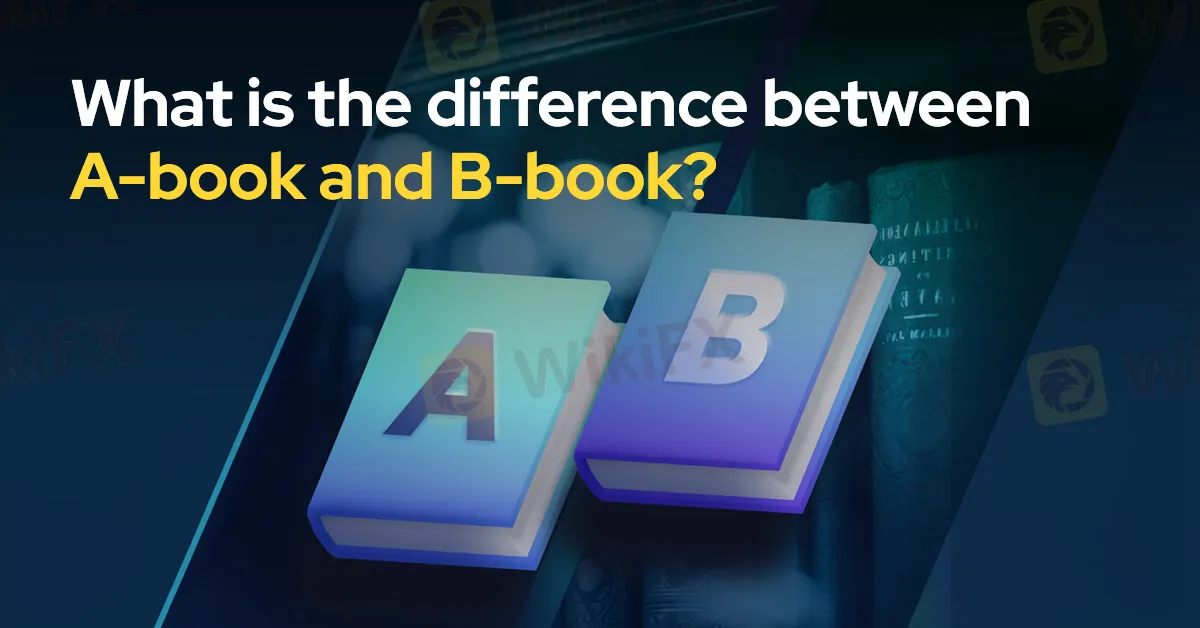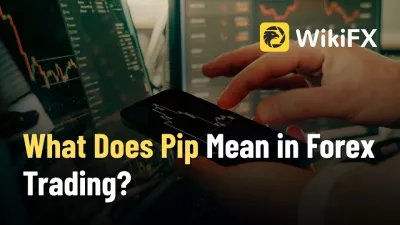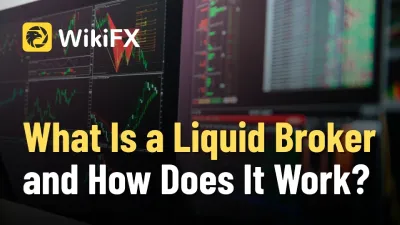What Does Pip Mean in Forex Trading?
In forex trading, a pip is the smallest unit of price movement between two currencies. It’s used to measure changes in exchange rates, calculate profits or losses, and manage trading strategies effectively.
简体中文
繁體中文
English
Pусский
日本語
ภาษาไทย
Tiếng Việt
Bahasa Indonesia
Español
हिन्दी
Filippiiniläinen
Français
Deutsch
Português
Türkçe
한국어
العربية
Abstract:Brokers are often classified into two categories: A-book and B-book brokers. Understanding these distinctions can help traders choose the right broker for their trading needs. In this article, we’ll delve into what A-book and B-book brokers are, how they operate, and the key differences between them.

Brokers are often classified into two categories: A-book and B-book brokers. Understanding these distinctions can help traders choose the right broker for their trading needs. In this article, well delve into what A-book and B-book brokers are, how they operate, and the key differences between them.
What Are A-book and B-book Brokers?
To grasp the concept of A-book and B-book brokers, we need to understand the fundamental distinction between them. These terms refer to how brokers handle their clients' trades and manage risk. Importantly, there are no brokers exclusively classified as A-book or B-book; instead, brokers might use one or both models depending on the situation.
A-book Forex Brokers
A-book brokers, often referred to as STP (Straight Through Processing) brokers, are known for passing their clients orders to the interbank market or other external execution venues. They act as intermediaries, sourcing liquidity and facilitating trades between their clients and the broader financial markets.
Characteristics of A-book Brokers:
Direct Market Access: Clients' orders are routed directly to the interbank market, where they are executed at prevailing market prices.
Transparency: Pricing and execution are generally more transparent since orders are fulfilled in the open market.
No Conflict of Interest: Since A-book brokers pass orders to external venues, they do not take opposing positions to their clients trades.
B-book Forex Brokers
B-book brokers, also known as market makers, operate differently. They internalize their clients‘ trades, meaning that orders are fulfilled by the broker’s own dealing desk rather than being passed on to external markets.
Characteristics of B-book Brokers:
Internal Order Fulfillment: Trades are executed internally, often by taking the opposite side of clients trades.
Market Making: The broker sets the bid and ask prices and may benefit when clients lose money, as their losses can directly contribute to the brokers profits.
Client Segmentation: Typically, B-book brokers may place less profitable traders into the B-book system, while more profitable traders might be handled through the A-book system.
Key Differences
The primary difference between A-book and B-book forex brokers lies in their order fulfillment processes:
A-book Brokers: Orders are executed in the interbank market or other external venues. Clients benefit from direct market access with potentially better transparency and pricing.
B-book Brokers: Orders are fulfilled internally by the brokers dealing desk. This can create a conflict of interest, as the broker may profit from clients' losses.
Conclusion
Choosing between an A-book and a B-book broker depends on your trading preferences and goals. A-book brokers offer transparency and direct access to the interbank market, while B-book brokers may provide more favorable conditions for certain types of traders but could have inherent conflicts of interest. Understanding these models can help you make an informed decision and select a broker that aligns with your trading strategy.

Disclaimer:
The views in this article only represent the author's personal views, and do not constitute investment advice on this platform. This platform does not guarantee the accuracy, completeness and timeliness of the information in the article, and will not be liable for any loss caused by the use of or reliance on the information in the article.

In forex trading, a pip is the smallest unit of price movement between two currencies. It’s used to measure changes in exchange rates, calculate profits or losses, and manage trading strategies effectively.

A forex expert advisor is an automated trading tool that executes strategies in the forex market. Learn how it works, its benefits, risks, and future trends.

To further enhance the sense of participation and belonging among members of the Elite Club in the Middle East and North Africa (MENA) region, and to raise awareness regarding the safety and compliance of forex trading in the regional market, WikiFX successfully held the themed content series “Elites’ View in Arab Region” from November 28 to December 28, 2025. The theme was “The First Line of Defense for Forex Safety: Education First, Jointly Promoting Healthy Forex Development."

A liquid broker connects traders to deep forex liquidity from banks and institutions, offering faster execution, tighter spreads, and transparent real-market pricing.
